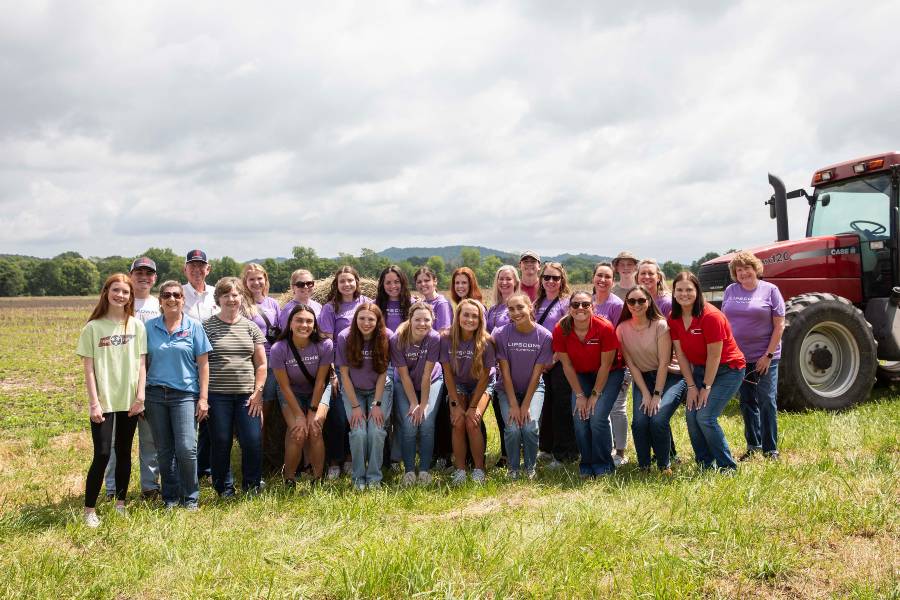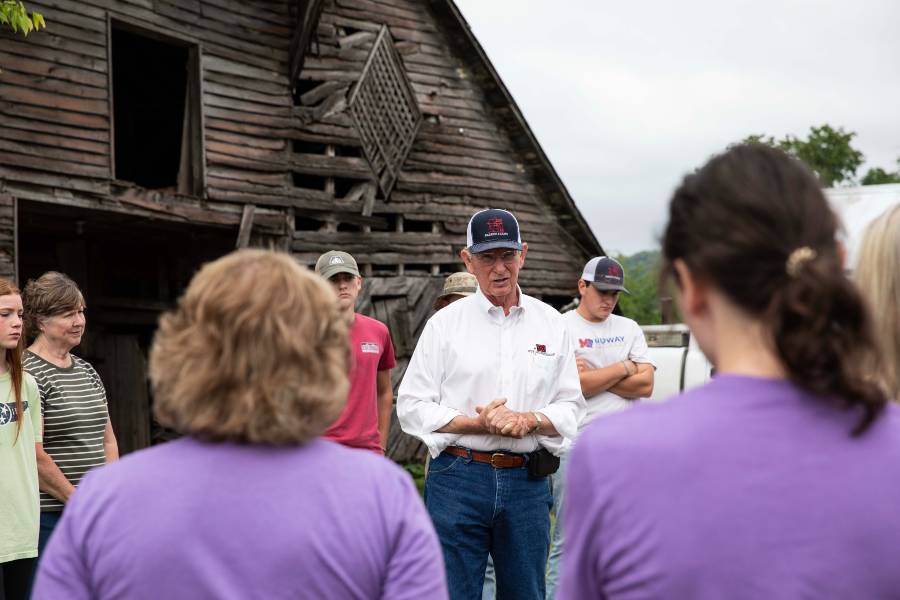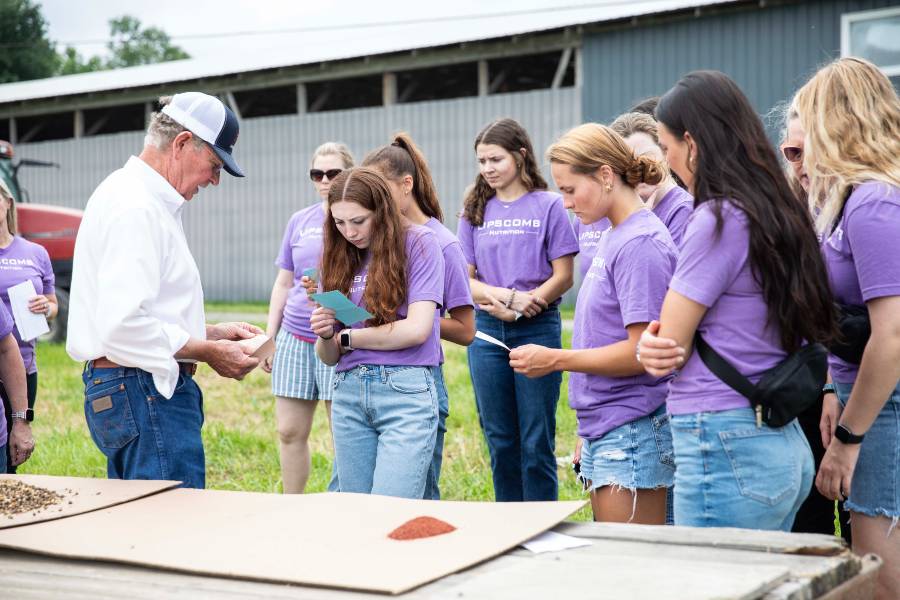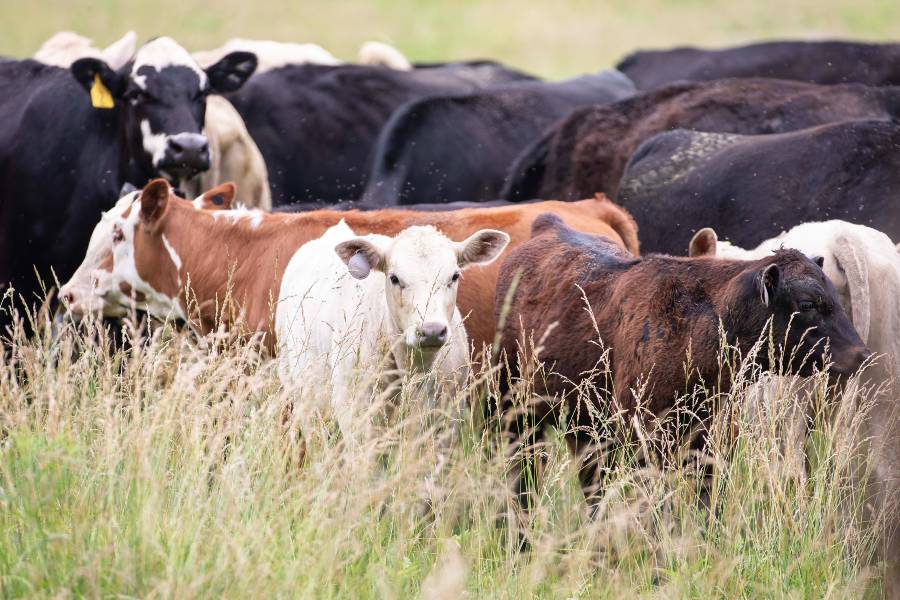Field to Fork: Exploring sustainable agriculture in Tennessee for Lipscomb graduate dietetic students
Anne Lowery and Tracy Noerper |

Lipscomb University’s Master of Science in Nutrition graduate students experienced firsthand what it’s like to manage a Beef Qualified Assurance (BQA) certified farm in Tennessee, diversified to include both crops and cattle on 1,500 acres.
Twelve dietetic students and College of Health Sciences’ faculty embarked on a tour of Mark Barker’s family farm in Readyville, Tennessee, nestled in the rolling hills of Cannon County. Operating continuously since 1914, the Barker farm stands as a testament to five generations of agricultural commitment. Barker, alongside his wife and other family members, resides on the farm, overseeing more than 200 head of Angus and Charolais bred cattle plus acres of corn, soybeans and hay.
Throughout the farm tour, students heard about Barker’s dedication to sustainable agricultural practices, including 100% no-till farming, two-year crop rotation and herd management practices, such as specific macro- and micro-nutrients supplemented in their feed. Students also learned that beef farmers participate in a check-off program through the Tennessee Beef Industry Council (TBIC), whose mission is to support farmers and increase demand for beef through marketing and education. The TBIC was instrumental in coordinating this educational experience on the farm and provided additional resources and training by their in-house registered dietitian.


In the days preceding the Barker farm tour, Carol McDonald, assistant commissioner for policy and legislation at the Tennessee Department of Agriculture, addressed the class about the significance of farming in Tennessee and the current challenges confronting Tennessee farmers and ranchers, including farmland conservation. Almost 500,000 acres of farmland have been lost in the state since 2017, she told the group.
McDonald underscored Tennessee's rich agricultural heritage, such as the state's seal bearing the inscription "agriculture" prominently displayed at its center. Agriculture reigns as the primary industry in Tennessee, with tourism following as the second.
The farm tour and guest speaker were organized as integral components of the "Global Food Cultures, Food Systems & Sustainable Agriculture" intensive June course, which is mandatory for all Master of Nutrition students. The ultimate goal of the class is to empower students to advocate for and communicate effectively with the public regarding food and health through the lens of resilient, sustainable food and water systems.
